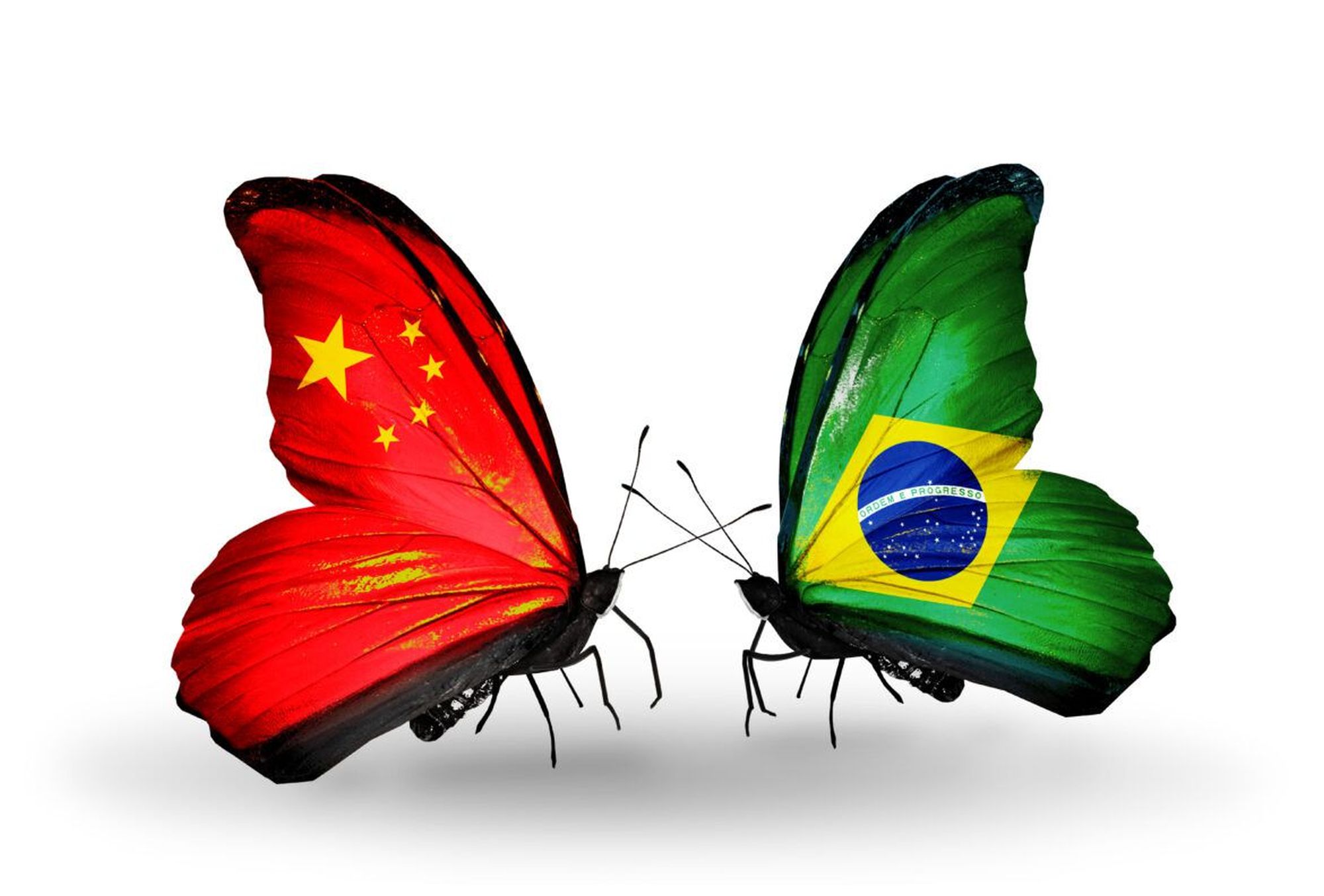Chinese leader Xi Jinping was to host Brazil’s president, Luiz Inácio Lula da Silva, in Beijing, in March, seeking to deepen ties with another diplomatic ally following Xi’s three-day visit to Russia.
The visit was postponed when the Brazilian leader was admitted to hospital with pneumonia. He is now set to visit from April 11 to 14.
The state visit comes at a time when China is trying to present itself as an important global power that can rival the US.
China’s trade relationship with Brazil was set to take center stage in the initial visit, with Lula set to bring a delegation of 240 business representatives with him to Beijing.
Trade flow between China and Brazil currently amounts to US$ 150 billion annually, and Brazilian exports to China reached US$ 89 billion in 2022.
China now invests in a wide range of sectors in Brazil, and experts say Beijing wants to tap into the South American country’s rich resources and market size.
“Brazil has a lot of resources that are of interest to China, and soy from Brazil is a major component of China’s overall thinking on food security,” said Margaret Myers, director of the Asia and Latin America Program at the Inter-American Dialogue.
Myers added that, given the size of the Brazilian market, it was a natural choice for Chinese companies to make it one of their first destinations in Latin America.
“The welcoming of China, Chinese engagement and Chinese investment to Brazil by the Lula administration in 2010 helped grow the bilateral dynamic,” she remarked.
Other analysts pointed out that Lula’s trip aims to further expand Chinese investment in Brazil, particularly in the manufacturing sector.
Evandro Menezes de Carvalho, a professor of international law at Brazil’s FGV University, said Brazil hopes to attract Chinese companies that can help foster growth in areas like automobiles and green energy.
Agriculture
Among them, the meat industry is particularly eager to gain more access to the Chinese market. The world’s largest meat company, JBS SA, was set to send 10 representatives as part of the Brazilian delegation on the March trip, according to Reuters news agency.
Leland Lazarus, the associate director for national security at Florida International University in the US, pointed out that China views Brazil as an important pillar in its engagement with Latin America. But Lula will likely try to strike a balance between prioritizing courting Chinese trade and investment and taking a tough stance on China when it came to environmental issues.
“Lula won’t be so keen to simply play second fiddle,” he said. “He will likely continue to find ways to boost exports of frozen bovine meat, soybeans, iron ore and crude petroleum to China’s massive market. At the same time, [he is likely to demand] China do more to reduce greenhouse gas emissions and [hold] Chinese state-owned enterprises operating in Brazil accountable for damaging Brazil’s precious environment.”
Chinese Dominance
Although Brazil hopes to maintain its deep economic engagement with China, the dominance of Chinese companies across many sectors in Brazil has sparked unease among Brazilian businesses and industry leaders.
In a recent piece published by the US-based think tank Global Americans, Evan Ellis, an expert on Latin American Studies at the US Army War College Strategic Studies Institute, pointed out that Chinese businesses have invested an estimated US$ 70 billion in Brazil over the last two decades.
Additionally, Chinese businesses have projects in 23 of Brazil’s 26 states, which span sectors like mining, agriculture, industry, telecommunications, finance and medicine.
Myers from the Inter-American Dialogue said industries and interest groups have expressed growing concerns about China’s engagement in certain sectors.
She said the manufacturing sector has been resisting open trade with China, as they worry it would negatively impact Brazilian industry and competitiveness. “There are many concerns about Chinese dominance across different sectors,” she said.
While Brazil is not a signatory to China’s flagship Belt and Road Initiative (BRI), Myers said the topic will likely be brought up when Xi and Lula eventually meet.
“Signing onto the BRI will result in some economic benefits for Brazil,” she said, adding that it was critically important for China to garner support not just for the BRI, but also for other wide-ranging China-backed initiatives.
Future of BRICS
While bilateral trade issues are expected to dominate talk between the two leaders, there are also important geopolitical implications.
The two countries signed a 10-year cooperation plan in 2012, after Beijing upgraded the bilateral relationship to a “comprehensive strategic partnership.”
China also sent its then vice president, Wang Qishan, to attend Lula’s inauguration earlier this year, highlighting the importance of Beijing’s relationship with Brasília.
As both countries are members of the BRICS group of emerging nations, some experts expect Xi and Lula to discuss the current status and future prospects of the alliance.
Myers said that she expects the two leaders’ future discussions to also include the ongoing war in Ukraine. “The Ukraine war will come up in a much more pragmatic sense, including the aspects related to BRICS and the implications of the conflict for the platform,” she said.
Lazarus from Florida International University added that Xi and Lula would likely present BRICS as “a successful framework for Global South cooperation.”
“While Xi may seek to claim economic leadership of BRICS, Lula will likely claim moral leadership on climate protection,” he said.
Additionally, Brazil’s role as a major player in South America can also offer a balancing effect amid the rising tensions between China and the US, said Dawisson Lopes, a professor of international and comparative politics at the Federal University of Minas Gerais in Brazil.
“It’s crucial for both China and the US to maintain good relationships with the largest country in South America,” he said.
DW












